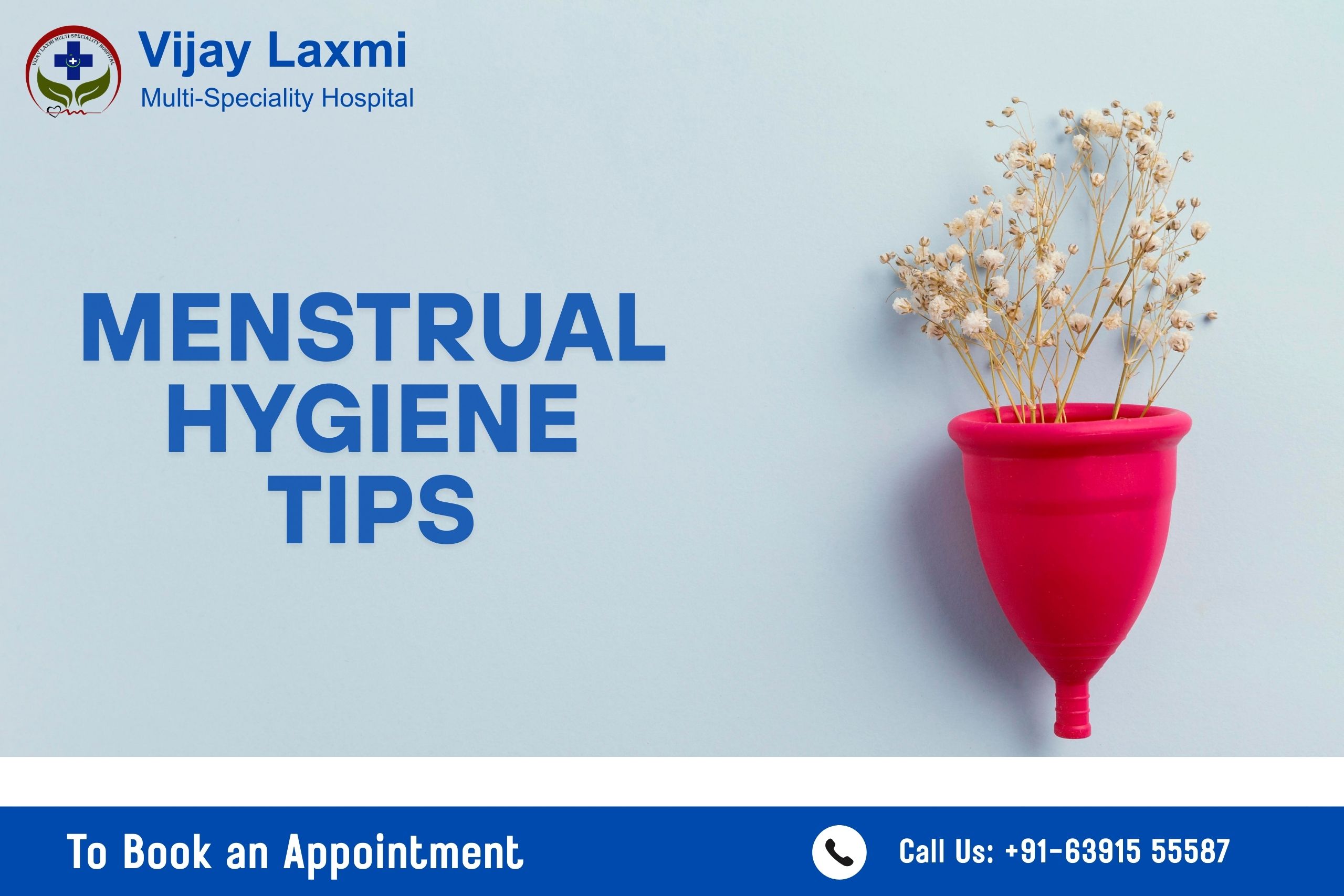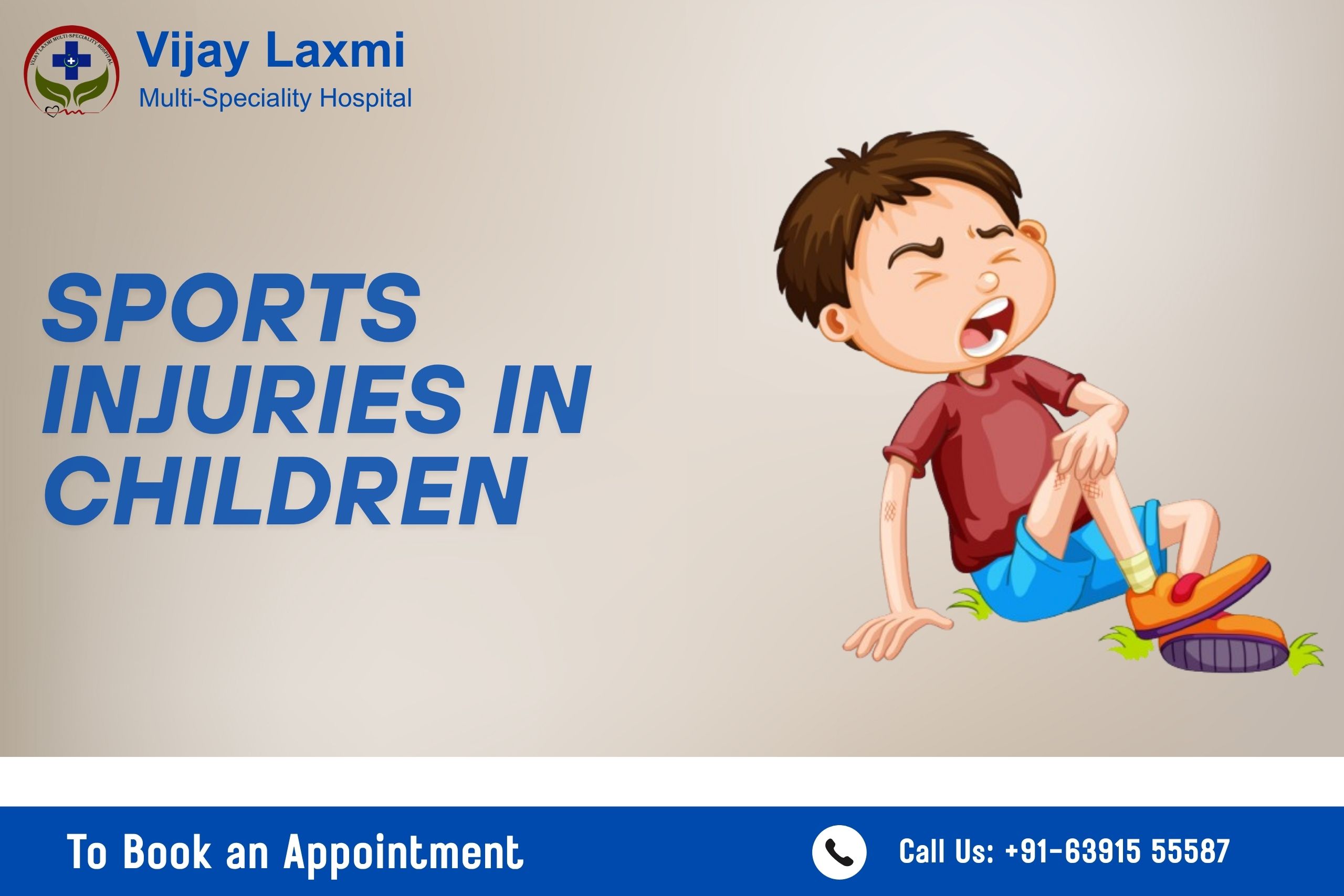
Signs of High-Risk Pregnancy: How Vijay Laxmi Multi-Speciality Hospital in Jaunpur Can Support You
Pregnancy is a time of joy, hope, and anticipation. But for some expecting mothers, it can also bring unexpected health challenges that require extra attention and care. This is what is commonly referred to as a high-risk pregnancy—a condition where the health of the mother, baby, or both may be at greater risk than usual.
In India, high-risk pregnancies are more common than many realize. According to the World Health Organization (WHO), a significant percentage of maternal complications stem from undetected or poorly managed high-risk cases. Indian government has also identified that nearly 30–40% of pregnancies in certain regions fall into the high-risk category due to factors like anemia, hypertension, and poor prenatal care.
Recognizing the early signs of a high-risk pregnancy is crucial. But just as important is having access to the right medical support system—and that’s where Vijay Laxmi Multi-Speciality Hospital in Jaunpur stands out. With a dedicated gynecology and obstetrics department led by Dr. Vijay Laxmi Patel, the hospital specializes in providing compassionate, expert care tailored for high-risk pregnancies.
What Is a High-Risk Pregnancy?
A high-risk pregnancy is one where the health or life of the mother, baby, or both may be at risk due to certain medical, genetic, or lifestyle-related factors. While many pregnancies progress without complications, high-risk pregnancies require closer monitoring, specialized care, and sometimes medical interventions to ensure a safe delivery.
Causes of High-Risk Pregnancy:
Several conditions and circumstances can place a pregnancy in the high-risk category. These include:
- Maternal age: Women below 17 or above 35 are at greater risk of complications.
- Pre-existing medical conditions: Diabetes, hypertension, thyroid disorders, kidney disease, or autoimmune conditions.
- Pregnancy-related complications: Gestational diabetes, preeclampsia, placenta previa, or multiple pregnancies (twins or triplets).
- Previous pregnancy history: Past miscarriages, stillbirths, or cesarean deliveries can increase risk.
- Lifestyle choices: Smoking, alcohol consumption, poor nutrition, or lack of prenatal care.
What to Watch for in a High-Risk Pregnancy?
For women with a high-risk pregnancy, awareness and vigilance are essential. Monitoring for warning signs and knowing when to seek medical help can significantly improve outcomes. Here are the key warning signs and symptoms you should watch for during your pregnancy, and why they matter:
1. Severe Abdominal Pain or Cramping
Any severe abdominal pain or persistent cramping could indicate complications such as preterm labor, placental abruption, or an ectopic pregnancy. While some mild discomfort is normal, sharp or continuous pain warrants immediate medical evaluation.
2. Heavy Bleeding or Spotting
Light spotting may be harmless early in pregnancy, but heavy bleeding could signal a miscarriage, placenta previa, or other serious complications. If bleeding is persistent or increases, seek medical attention immediately.
3. Severe Swelling in Hands, Face, or Legs
Unexpected and severe swelling of the hands, face, or legs could be an indicator of preeclampsia. If swelling is sudden or accompanied by high blood pressure or protein in the urine, contact your doctor.
4. Sudden Vision Changes
Vision problems such as blurriness, seeing spots, or flashing lights are signs that you could be experiencing preeclampsia or high blood pressure. These changes can indicate a dangerous condition that requires immediate medical attention.
5. Severe Headaches That Don’t Go Away
Uncontrollable headaches, especially when paired with swelling, visual disturbances, or nausea, are another sign of preeclampsia or high blood pressure and should not be ignored.
6. Reduced Fetal Movement
A noticeable decrease in fetal movement, especially in the third trimester, can be a sign of fetal distress. If you notice a change in your baby’s usual activity levels, contact your healthcare provider immediately.
7. Painful Urination or Blood in Urine
Painful urination or the presence of blood in the urine can indicate an infection like a urinary tract infection (UTI) or kidney issues, which can escalate into more severe complications if left untreated.
8. Dizziness, Fainting, or Shortness of Breath
These symptoms could indicate a serious complication, such as low blood pressure, blood clots, or heart problems. They should be taken seriously, especially if they persist or worsen.
How Vijay Laxmi Multi-Speciality Hospital Supports High-Risk Pregnancies?
When it comes to high-risk pregnancies, having access to specialized care and resources is essential for the safety of both mother and child. At Vijay Laxmi Multi-Speciality Hospital in Jaunpur, expectant mothers receive comprehensive care throughout their pregnancy journey, particularly when complications arise.
Expert Care from Dr. Vijay Laxmi Patel and Dr. Pragati Singh
Under the expert guidance of Dr. Vijay Laxmi Patel, the hospital’s gynecology department offers specialized care tailored for high-risk pregnancies. Dr. Vijay Laxmi Patel is a renowned expert, known for her dedication to the health and well-being of both mothers and babies. She and her team of skilled professionals work relentlessly to monitor, diagnose, and treat conditions that may put the pregnancy at risk.
Advanced Diagnostic Tools and Monitoring
Vijay Laxmi Multi-Speciality Hospital is equipped with cutting-edge diagnostic tools that allow for the early detection of potential risks. The hospital offers:
- Ultrasound and fetal monitoring: To track fetal health and detect abnormalities early.
- Blood pressure and glucose monitoring: Essential for managing conditions like hypertension and gestational diabetes.
- Advanced blood tests: To monitor for any potential complications like anemia, infections, or hormonal imbalances.
With these resources, doctors can identify high-risk factors and intervene at the earliest, helping reduce the risks associated with complications during pregnancy.
24/7 Emergency Services
High-risk pregnancies can sometimes escalate suddenly, and that’s why having round-the-clock access to emergency services is vital. The hospital’s emergency department is always ready to provide immediate care in cases of preterm labor, heavy bleeding, or other pregnancy-related complications. This quick access to emergency care ensures that expectant mothers are never left without the help they need during critical moments.
NICU and Specialized Care for Newborns
For cases where premature birth is a concern, Vijay Laxmi Multi-Speciality Hospital offers access to a Neonatal Intensive Care Unit (NICU) under expert pediatrician Dr. Gunjan Patel, equipped to handle the specialized needs of newborns requiring intensive monitoring and treatment. This provides peace of mind for parents knowing that if complications arise during delivery, their baby will receive the best possible care.
Personalized and Compassionate Care
Pregnancy is a unique experience for every woman, and at Vijay Laxmi Multi-Speciality Hospital, the staff understands the importance of personalized care. From prenatal counseling to post-delivery support, every aspect of care is designed to ensure that mothers feel safe, supported, and well-informed.
With these comprehensive services, Vijay Laxmi Mult-Speciality Hospital ensures that women with high-risk pregnancies in Jaunpur have access to the best medical care, minimizing the risks and improving outcomes for both mother and baby.
Why Early Detection and Expert Care Matter?
When it comes to high-risk pregnancies, early detection and timely intervention are the keys to ensuring the best outcomes for both mother and baby. The earlier potential complications are identified, the better equipped healthcare providers are to manage and treat them, significantly improving the chances of a healthy pregnancy and delivery.
The Role of Early Diagnosis:
High-risk pregnancies are often manageable with the right care. Early detection of conditions such as gestational diabetes, hypertension, preterm labor, and placental issues can allow for:
- Preventive care to reduce risks.
- Close monitoring of the baby’s development and maternal health.
- Timely medical interventions to avoid further complications.
How Timely Medical Intervention Improves Outcomes
Many complications that arise during pregnancy can be successfully managed if addressed promptly. For instance, preeclampsia can be managed with medications and lifestyle changes if diagnosed early. Gestational diabetes can often be controlled through diet, exercise, and medication. Early detection of fetal growth restriction can lead to interventions such as frequent monitoring or, in some cases, an early delivery to prevent stillbirth.
At Vijay Laxmi Multi-Speciality Hospital, early detection is made possible through state-of-the-art diagnostic tools, routine checkups, and expert care from Dr. Vijay Laxmi Patel and her team of specialists.
Peace of Mind with Specialized Care
Pregnancy, especially a high-risk one, can be stressful, but knowing you’re under the care of dedicated professionals who are experienced in managing high-risk pregnancies can provide immense peace of mind. Dr. Patel’s team provides continuous support, from the first sign of risk through delivery and post-partum care.
Access to Advanced Treatment Options
For high-risk pregnancies, advanced medical care and treatment options are often required. With specialized services like fetal monitoring, NICU support, and advanced imaging technologies, Vijay Laxmi Multi-Speciality Hospital ensures that all medical needs are met, no matter how complex they may be.
Comprehensive Maternal and Fetal Health
The focus at Vijay Laxmi Multi-Speciality Hospital is not only on managing high-risk pregnancies but also on maintaining the overall health of both mother and baby throughout the pregnancy. Dr. Vijay Laxmi Patel and her team work closely with each patient to monitor progress and make adjustments to care plans as necessary.
In summary, early detection and expert care at the right time can help prevent serious complications, ensuring a safer pregnancy and delivery. Expecting mothers in Jaunpur, especially those with high-risk pregnancies, should feel confident in the specialized care they receive at Vijay Laxmi Multi-Speciality Hospital, where expert care is just a call away.
Relaxation Tips for Pregnant Women in a High-Risk Pregnancy:
Managing a high-risk pregnancy can be physically and emotionally taxing. Along with expert medical care, it’s crucial to find ways to relax and reduce stress. Here are some practical tips to help expecting mothers feel more at ease during a high-risk pregnancy:
1. Practice Deep Breathing and Meditation
Engaging in deep breathing exercises and meditation can help reduce anxiety and promote relaxation. Taking a few minutes each day to focus on your breath can calm the mind and help manage stress. Apps like Calm or Headspace offer guided meditation that can be a helpful tool during pregnancy.
2. Gentle Prenatal Yoga or Stretching
Prenatal yoga is designed to promote physical and mental well-being. Gentle stretching and yoga postures help to ease tension in the body, improve circulation, and reduce swelling, which are especially beneficial during high-risk pregnancies. Dr. Vijay Laxmi Patel and the hospital’s team can provide safe exercises suitable for your specific condition.
3. Take Warm Baths
A warm bath can do wonders for relaxing tight muscles, reducing stress, and soothing discomfort. Just make sure the water temperature isn’t too hot, as extremely hot water can sometimes lead to overheating. Adding Epsom salts or lavender oil can make the experience even more calming.
4. Stay Connected with Loved Ones
A high-risk pregnancy can sometimes feel isolating, but maintaining social connections is key. Talk to your partner, friends, or family about your feelings and concerns. Having a strong support network can help alleviate emotional stress and provide comfort during challenging moments.
5. Listen to Calming Music
Music has a powerful ability to change our mood and calm the mind. Create a playlist of your favorite calming tunes, nature sounds, or even classical music. Listening to soothing melodies can help promote relaxation and reduce anxiety, making you feel more at peace.
6. Enjoy Herbal Teas (Consult Your Doctor First)
Certain herbal teas, such as chamomile or ginger tea, can help promote relaxation and soothe digestive discomfort. However, always check with your doctor or gynecologist before trying new teas during pregnancy, especially in high-risk cases.
7. Take Short Walks
If your doctor permits, gentle walks can be a wonderful way to clear your mind and enjoy the outdoors. Fresh air and movement can boost endorphin levels, helping you feel more relaxed and energized.
8. Rest and Nap When Needed
Listen to your body and prioritize rest. High-risk pregnancies often come with fatigue, and resting can help your body recharge. Take naps or simply lie down and relax. Allowing your body the time to rest is essential for both your well-being and that of your baby.
9. Mindfulness and Positive Affirmations
Practice mindfulness by focusing on the present moment, rather than worrying about future uncertainties. Positive affirmations like “I am strong,” “I am supported,” and “My baby is healthy” can create a sense of empowerment and reduce anxiety. Repeating these positive statements daily can help you feel more confident in your body’s ability to handle the challenges of pregnancy.
10. Eat a Balanced Diet and Stay Hydrated
A well-balanced, nutrient-rich diet helps you maintain energy levels and supports your emotional well-being. Avoid processed foods, and focus on fresh fruits, vegetables, and lean proteins. Staying hydrated is also crucial for relaxation, as dehydration can lead to headaches and increased stress levels.
FAQs on High-Risk Pregnancy
1. What factors contribute to a high-risk pregnancy?
A high-risk pregnancy can be influenced by a variety of factors including maternal age, pre-existing medical conditions (such as diabetes, hypertension, or thyroid problems), multiple pregnancies (twins or more), previous pregnancy complications, poor lifestyle habits (like smoking or poor nutrition), and certain pregnancy-related issues such as preeclampsia or gestational diabetes.
2. When should I see a doctor if I suspect a high-risk pregnancy?
If you notice symptoms such as severe abdominal pain, heavy bleeding, swelling, headaches, changes in fetal movement, or vision problems, it’s important to consult a doctor immediately. Early intervention can help prevent complications and improve both maternal and fetal health.
3. How can high-risk pregnancies be managed?
High-risk pregnancies are managed with frequent monitoring, specialized medical care, and sometimes medication. Depending on the condition, you may need additional tests, more frequent check-ups, bed rest, or a carefully monitored delivery plan. At Vijay Laxmi Multi-Speciality Hospital, we provide all these services under one roof, with the guidance of Dr. Vijay Laxmi Patel, ensuring you receive the best care possible.
4. Can high-risk pregnancies be prevented?
While not all high-risk pregnancies can be prevented, taking steps to maintain a healthy lifestyle before and during pregnancy can reduce risk factors. This includes getting regular prenatal care, eating a balanced diet, avoiding harmful substances like tobacco and alcohol, managing pre-existing conditions, and controlling blood sugar or blood pressure levels. Early prenatal care can help manage risks effectively.
5. What are the risks of a high-risk pregnancy to the baby?
If not managed properly, high-risk pregnancies can lead to preterm birth, low birth weight, birth defects, fetal distress, or even stillbirth. Close monitoring and timely interventions help mitigate these risks.
6. What should I expect during labor and delivery if I have a high-risk pregnancy?
Women with high-risk pregnancies may require special monitoring during labor and delivery. Depending on the situation, a C-section delivery might be recommended, or there might be an emphasis on continuous fetal monitoring. At Vijay Laxmi Multi-Speciality Hospital, our team ensures that the delivery plan is customized based on your health and the baby’s condition, prioritizing both safety and comfort.
7. How does Vijay Laxmi Multi-Speciality Hospital help with high-risk pregnancies?
At Vijay Laxmi Multi-Speciality Hospital, we offer 24/7 emergency services, advanced diagnostic tools, personalized care, and access to a Neonatal Intensive Care Unit (NICU). Under the guidance of Dr. Vijay Laxmi Patel, we provide expert care for both mother and baby throughout the pregnancy, ensuring the best outcomes.
According to the WHO, India’s maternal mortality ratio has significantly declined in recent years but still poses a concern in rural areas where access to specialized care is limited.
- As per WHO’s Global Health Observatory (GHO) data, India’s MMR was 103 per 100,000 live births in 2019, showing steady progress from previous years.
- However, high-risk pregnancies continue to contribute to maternal deaths, especially among women with limited prenatal care access.
WHO Global Health Observatory – India MMR Data
Conclusion:
High-risk pregnancies can be challenging, but with the right support system and expert medical care, they can be managed safely. Recognizing the early signs—like high blood pressure, gestational diabetes, or previous pregnancy complications—is key to ensuring timely intervention and better outcomes for both mother and baby.
At Vijay Laxmi Multi-Speciality Hospital in Jaunpur, women facing high-risk pregnancies receive world-class care led by Dr. Vijay Laxmi Patel, a respected gynecologist known for her dedication to maternal health. From advanced diagnostic tools to personalized pregnancy plans, the hospital is fully equipped to support expectant mothers every step of the way.
If you or someone you know is experiencing a high-risk pregnancy, don’t wait—schedule a consultation with Dr. Vijay Laxmi Patel today and take the first step toward a safer, healthier pregnancy journey.











